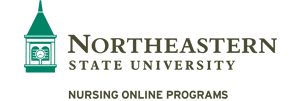Don’t let the name fool you. “Big data” can be large in volume, but its real challenges and its most promising opportunities lie in its complexity. Why, then, is big data so complex?
According to American Nurse Today, big data is any amount of information that is so voluminous and multifaceted that it must be examined with computers and statistical analysis software. Big data is constantly being acquired and updated, especially in the case of electronic health records, often changing daily. Regardless of the amount of data your organization has, the most meaningful opportunities lie in what you as a nurse informaticist can do with that data.
With technology impacting almost every aspect of a nurse’s job, from charting and medication management to patients’ electronic health records, the information that technology provides grows into massive data sets. The challenge lies in integrating lots of different types of data and analyzing them to more clearly understand outcomes, according to Joyce Sensmeier, author of “Understanding the Impact of Big Data on Nursing Knowledge.”
Think of the number of interactions you have with patients in a typical shift, multiply that by all the nurses on your floor or unit, and then extrapolate that to the number of interactions during all shifts in a month or a year. That’s just one data set for one facility.
Then consider the amount of clinical, socio-economic and other data that could be compiled for a community, region or state. What kinds of patterns could you begin to see? What kinds of opportunities would you find? This is where big data has the potential to shine.
How do Nurse Informaticists use Big Data?
Nurse informaticists analyze big data to look for patterns, trends and commonalities among patient populations and communities. Then they use those insights to prevent disease, encourage patients (and clinicians) to change behaviors, and improve health.
Nurse informaticists can use big data to pinpoint opportunities like better infection control protocols. They can use it to identify and address unhealthy behaviors in certain populations and design interventions. Healthcare professionals can even use it to predict the spread of infectious diseases. From tracking the spread of flu to decreasing hospital-acquired infections, nurse informaticists use big data to research, report and implement change.
The Need for Data Management Skills and Knowledge
Ultimately, the information synthesized from big data should yield answers and reveal new insights about the population, disease or problem being examined. Now more than ever, it takes a special kind of person to manage and analyze data and then use the insights gained to improve outcomes.
To do that, students in the Master of Science in Nursing in Nursing Informatics online program at Northeastern State University take a dedicated, seven-week Data Management and Healthcare Technology integrating lots of different types of data course in addition to three other specific nursing informatics courses.
Data management is also woven throughout the program’s seven core courses as students learn the hardware and software associated with healthcare data management. In this way, data management forms the foundation of the MSN in Nursing Informatics coursework.
Such data management skills could specifically address big data’s need to standardize the method of documentation among all nurses. Though electronic health records and electronic charting have existed for decades, the lack of standardized documentation does not allow patient data to be compared across populations, communities and institutions — or shared with other organizations to its fullest.
To use big data for meaningful research and reporting, and to truly transform healthcare, nurses need standardized frameworks through which information can be shared to improve clinical outcomes. Improving outcomes across one initiative or project then elevates the overall quality of care and has the potential to lower costs.
As a nurse informaticist, you can bring about real change and lay the groundwork for new discoveries in clinical practice. You can turn the “data” in big data into the “evidence” in evidence-based care. The future of information collection is only getting bigger.
Learn more about Northeastern State University’s online MSN in Nursing Informatics program.


